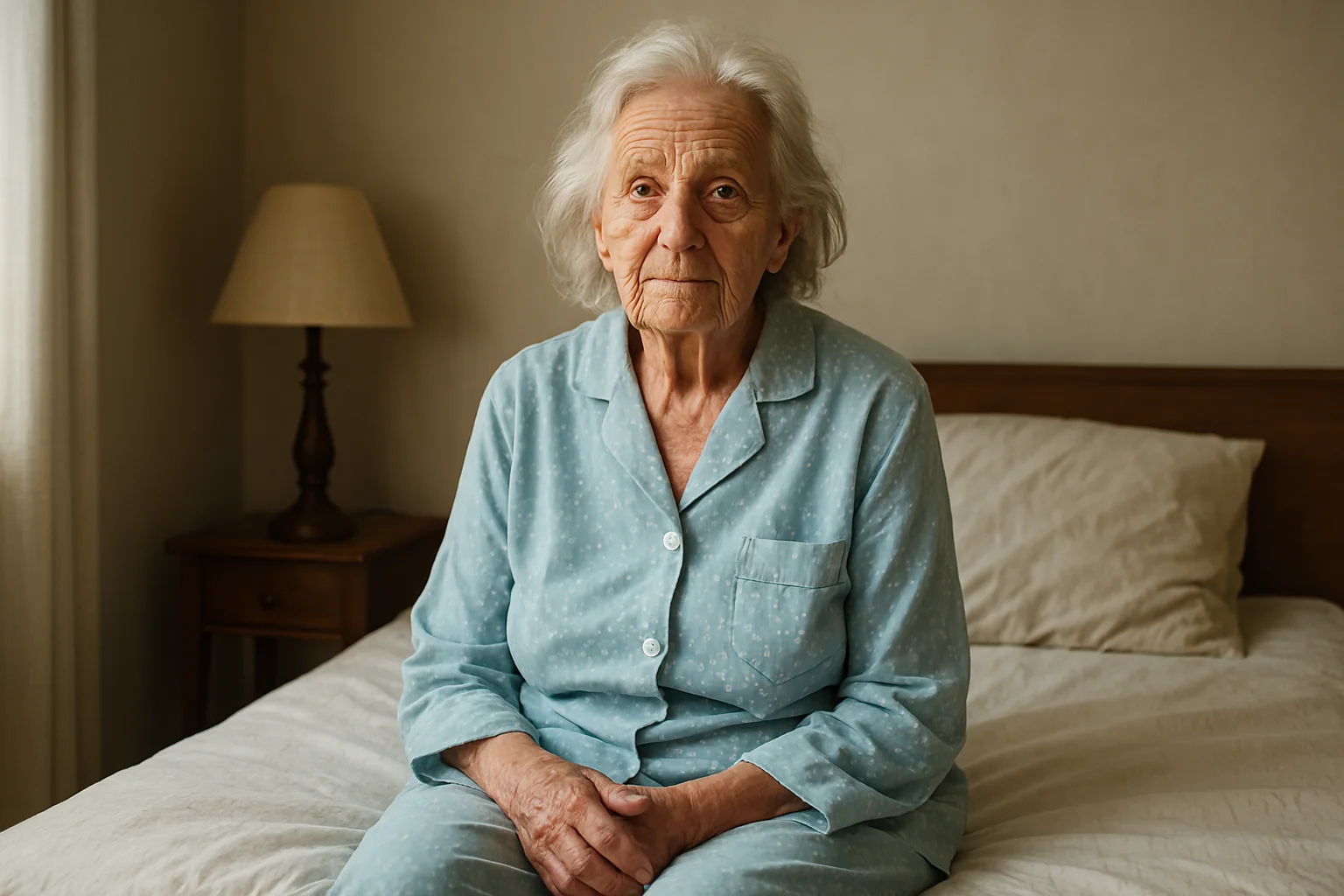Imagine settling into bed after a long day. Your pillow is gently misted with lavender, or a diffuser releases warm floral notes of rose or jasmine into the air. The room feels comforting, tranquil, and just a little bit magical. At first, you might assume these scents simply help you relax. However, there is more happening beneath the surface. The aromas drifting through your bedroom could be influencing how—and what—you dream.
Smell has a direct line to the emotional core of the brain. Consequently, this connection may shape the tone, vividness, or emotional depth of your dream experiences. While science is just beginning to explore this relationship, early findings are both compelling and imaginative. This journey weaves through emerging research, ancient traditions, and personal rituals—revealing that the right scent might guide your dreams in unexpected, beautiful ways.
The Hidden Power of Smell During Sleep
While most people are aware that light and noise can affect sleep, scent often goes unnoticed. Yet among the five senses, smell holds the strongest connection to memory and emotion. When you inhale a fragrance, its molecules pass through the nose and activate receptor cells. These receptors connect directly to the limbic system—the part of the brain responsible for emotional responses and memory storage.
Interestingly, the limbic system remains active even during sleep. In particular, REM sleep—the stage when vivid dreams occur—relies heavily on this region. Because olfactory signals bypass many brain filters that other senses must pass through, scent has a direct pipeline to the dreaming mind. As a result, fragrance may influence dream content more powerfully than previously imagined.
In fact, one notable study from the University Hospital Mannheim found that pleasant smells like rose tended to generate more positive dream emotions. Conversely, unpleasant odors triggered more negative or disturbing dreams. These findings suggest that our sense of smell doesn’t shut off when we sleep. Rather, it may subtly shape the narrative, mood, and imagery of our inner world.
The Emotional Current of Aromas
It may seem surprising that a simple scent could shift the course of a dream. Yet consider how powerful smell is during waking life. The aroma of fresh bread may spark feelings of comfort and safety. A hint of ocean breeze might transport you to childhood vacations. These emotional links don’t disappear when you fall asleep—instead, they may grow even stronger.
Moreover, many people already incorporate aromatherapy into their nightly routines. A drop of lavender oil on the pillow, or a diffuser gently releasing calming scents, creates a peaceful bedtime environment. These aromas, once associated with relaxation, can follow you into sleep and influence your dreams. Lavender, known for its soothing properties, may help reduce stress and inspire tranquil dreamscapes.
In addition, some individuals report that rose or jasmine leads to vibrant, romantic, or surreal dreams. The effect often depends on personal associations. For instance, rose may remind someone of a family garden, evoking nostalgic imagery. Meanwhile, jasmine might inspire visions of moonlit landscapes or emotionally rich encounters.
From Nightmares to Soft Landings
For those who struggle with nightmares, fragrance may offer gentle relief. Nightmares often stem from anxiety, unresolved trauma, or stress. Therefore, researchers are exploring whether soothing scents might reduce the frequency or intensity of these distressing dreams.
In early studies, participants suffering from recurring nightmares began incorporating scent into their bedtime rituals. They selected fragrances linked to calm or positive memories. Over time, many noticed fewer frightening dreams, as well as a softer emotional tone upon waking.
This does not mean that scent alone can “cure” nightmares. However, it can become part of a multi-faceted approach. Combined with dream journaling, mindfulness, or therapy, fragrance becomes another tool in the journey toward peaceful sleep.
Waking Life Associations
Our relationship with scent doesn’t begin—or end—in the dream world. In waking life, peppermint is often used to sharpen focus and mental clarity. Interestingly, some people find it leads to faster-paced, more dynamic dreams. Their nighttime stories take on an energized, problem-solving quality.
Likewise, scents tied to personal memories can resurface in dreams. For example, if vanilla reminds you of baking cookies with your grandmother, using it at bedtime might stir up those exact emotions and images. In this way, fragrance becomes a bridge between memory, emotion, and imagination.
Thus, dream influence through scent may be less about universal rules and more about individual experience.
Crafting a Personalized Aromatic Journey
If you’re curious about using scent to guide your dreams, the journey can be simple and rewarding. Start by experimenting with one fragrance at a time. Then, keep a dream journal beside your bed to track any changes in dream quality, emotional tone, or recall.
Over time, you may notice patterns. For instance, cedar might lead to grounding, earthy dreams. Bergamot could evoke more whimsical or artistic dreamscapes. The process is as personal as it is profound.
Some people also develop a nightly ritual. They dim the lights, light a candle, and take a few deep breaths of their chosen scent. Along with setting an intention, this helps signal the brain to wind down and open up to deeper rest.
Of course, not everyone responds the same way. Some people may notice dramatic shifts, while others detect only subtle changes. Still, the deeply personal connection between scent, memory, and emotion makes this an intimate form of dream exploration.
Cultural and Historical Perspectives
Long before aromatherapy became a wellness trend, ancient cultures explored the power of scent in dream work. Egyptian ceremonies included the use of sacred oils and incense to invite spiritual visions. Greek temples burned fragrant herbs to purify and induce altered states. In medieval Europe, perfumed sachets were placed under pillows—not only for comfort, but also to ward off nightmares or attract prophetic dreams.
Similarly, in Ayurvedic and Eastern traditions, scent is tied to balance, insight, and spiritual health. These beliefs reflect a long-standing idea: that fragrance has the power to guide the subconscious.
While modern science brings new language and research to the table, it echoes what ancient people already suspected—that scent can shape the unseen world of dreams.
Practical Cautions and Considerations
If you’re thinking of experimenting with bedtime fragrances, it’s important to keep a few things in mind. Essential oils are highly concentrated. Therefore, they should always be diluted properly to avoid skin irritation or respiratory issues. Use diffusers at a low, consistent level, and ensure your bedroom is well-ventilated.
Moreover, quality matters. Natural essential oils contain complex molecules that interact with the body differently than synthetic perfumes. Cheap or artificial scents may disrupt sleep or cause headaches in sensitive individuals.
In shared spaces, always consider your sleep partner. While lavender might soothe you, it could overwhelm or irritate someone else. Open communication ensures that the experience is pleasant for everyone.
The Dream Journal Connection
One of the best ways to measure scent’s impact on your dreams is to keep a dream journal. Upon waking, jot down what you remember—the mood, the imagery, the emotions. If you used a scent that night, include that as well.
Gradually, patterns may emerge. Perhaps sandalwood coincides with spiritual or symbolic dreams. Maybe peppermint brings vivid, fast-moving narratives. The journal becomes both a mirror and a map, offering insights into how your inner world reacts to subtle stimuli.
In fact, even without scent, journaling alone can deepen dream clarity. But paired with fragrance, it can become a potent practice of self-awareness and nighttime creativity.
Beyond Relaxation: Creative Potential
Fragrance-assisted dreaming isn’t limited to sleep quality or emotional well-being. It also offers potential for creativity. Artists, writers, and innovators sometimes use scent to spark inspiration. Scents like frankincense or patchouli can open the door to dreamscapes filled with metaphor and mystery.
Although the science behind scent-driven creativity is still evolving, personal testimonies suggest something powerful is happening. Dreams have long been a source of artistic and intellectual breakthroughs. Why not give that process a gentle aromatic boost?
A Gateway to Self-Exploration
Whether you rarely remember dreams or craft nightly epics, scent offers a new doorway into your subconscious. No, fragrance doesn’t provide full control. But it does shape the emotional backdrop. Like choosing a musical key before improvising a melody, the scent sets the tone, and your sleeping mind writes the story.
In a world that constantly demands your attention, turning inward through scent and dream is both radical and restorative. Selecting a fragrance becomes an intentional act—a commitment to self-care and psychological exploration. It transforms bedtime into a ritual of curiosity, creativity, and connection.
Closing Thoughts
Scents have a mysterious power to shape our inner worlds. They drift silently through the air, triggering memories, guiding emotions, and influencing imagination. The dreams they inspire may feel like gifts—glimpses into hidden landscapes within ourselves.
As research continues to unfold, and as more people explore bedtime aromatherapy, our understanding of this subtle influence will deepen. Ultimately, fragrance becomes more than relaxation—it becomes a tool for emotional navigation and self-discovery.
So next time you prepare for sleep, notice the scent in the room. It might be more than just pleasant—it might be the spark of your next dream.






